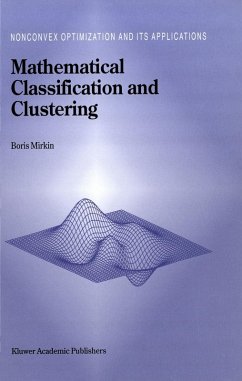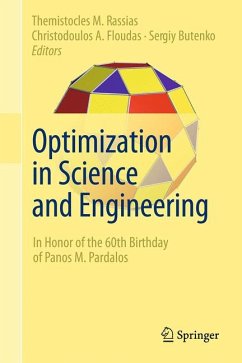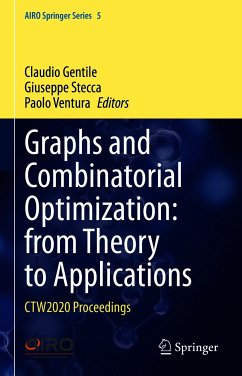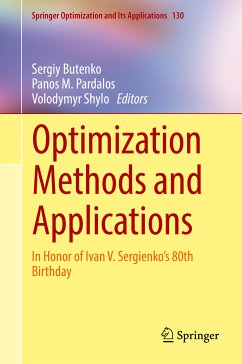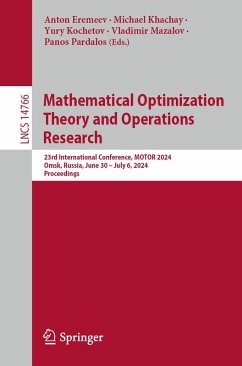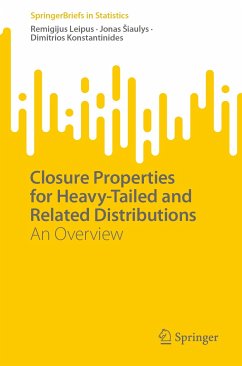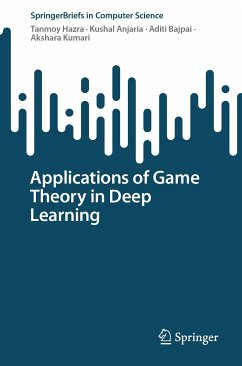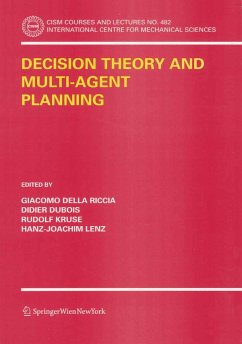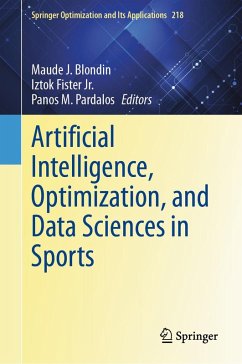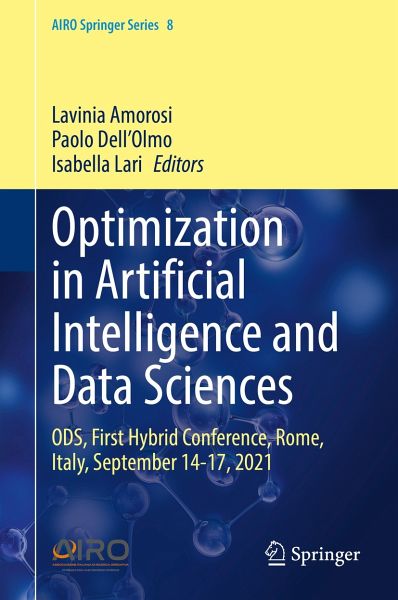
Optimization in Artificial Intelligence and Data Sciences (eBook, PDF)
ODS, First Hybrid Conference, Rome, Italy, September 14-17, 2021
Redaktion: Amorosi, Lavinia; Lari, Isabella; Dell'Olmo, Paolo

PAYBACK Punkte
52 °P sammeln!
This book is addressed to researchers in operations research, data science and artificial intelligence. It collects selected contributions from the first hybrid "Optimization and Decision Science - ODS2021" international conference on the theme Optimization and Artificial Intelligence and Data Sciences, which was held in Rome 14-17 September 2021 and organized by AIRO, the Italian Operations Research Society and the Department of Statistical Sciences of Sapienza University of Rome.The book offers new and original contributions on different methodological optimization topics, from Support Vecto...
This book is addressed to researchers in operations research, data science and artificial intelligence. It collects selected contributions from the first hybrid "Optimization and Decision Science - ODS2021" international conference on the theme Optimization and Artificial Intelligence and Data Sciences, which was held in Rome 14-17 September 2021 and organized by AIRO, the Italian Operations Research Society and the Department of Statistical Sciences of Sapienza University of Rome.
The book offers new and original contributions on different methodological optimization topics, from Support Vector Machines to Game Theory Network Models, from Mathematical Programming to Heuristic Algorithms, and Optimization Methods for a number of emerging problems from Truck and Drone delivery to Risk Assessment, from Power Networks Design to Portfolio Optimization. The articles in the book can give a significant edge to the general themes of sustainability and pollution reduction, distributive logistics, healthcare management in pandemic scenarios and clinical trials, distributed computing, scheduling, and many others.
For these reasons, the book is aimed not only at researchers in the Operations Research community but also for practitioners facing decision-making problems in these areas and to students and researchers from other disciplines, including Artificial Intelligence, Computer Sciences, Finance, Mathematics, and Engineering.
The book offers new and original contributions on different methodological optimization topics, from Support Vector Machines to Game Theory Network Models, from Mathematical Programming to Heuristic Algorithms, and Optimization Methods for a number of emerging problems from Truck and Drone delivery to Risk Assessment, from Power Networks Design to Portfolio Optimization. The articles in the book can give a significant edge to the general themes of sustainability and pollution reduction, distributive logistics, healthcare management in pandemic scenarios and clinical trials, distributed computing, scheduling, and many others.
For these reasons, the book is aimed not only at researchers in the Operations Research community but also for practitioners facing decision-making problems in these areas and to students and researchers from other disciplines, including Artificial Intelligence, Computer Sciences, Finance, Mathematics, and Engineering.
Dieser Download kann aus rechtlichen Gründen nur mit Rechnungsadresse in A, B, BG, CY, CZ, D, DK, EW, E, FIN, F, GR, HR, H, IRL, I, LT, L, LR, M, NL, PL, P, R, S, SLO, SK ausgeliefert werden.



